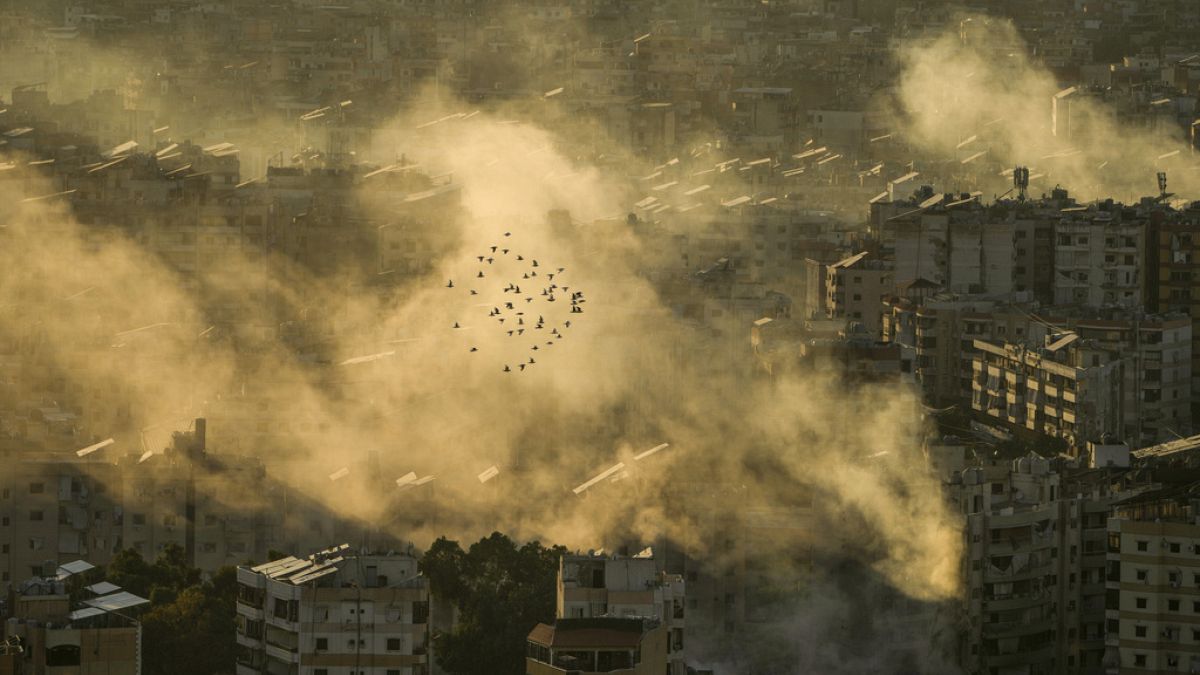Gaza and Lebanon witnessed tragic events on Friday, with dozens of people losing their lives due to Israeli attacks. In Gaza, at least 38 people were killed in an airstrike in Khan Younis, following massive overnight attacks that targeted various locations in the region. Earlier, 17 individuals died in an attack on a school, while the Jabalia refugee camp and Kamal Adwan hospital were also hit. These strikes occurred the day after US Secretary of State Antony Blinken stated that Israel had effectively dismantled Hamas and called for both sides to resume negotiations. During his visit to Qatar, he expressed hope for the revival of ceasefire talks between Israel and Hamas.
In Lebanon, three journalists lost their lives in an Israeli airstrike on guesthouses where they were staying. The attack, which occurred in southeast Lebanon, did not come with any warning from the Israeli army. Representatives of news networks and Lebanese politicians accused Israel of war crimes and deliberately targeting journalists. Imran Khan, a senior correspondent for Al Jazeera English, who was among the journalists present, described the victims as professionals who were simply resting after covering the conflict. Media outlets such as Al-Mayadeen TV and Al-Manar TV confirmed the deaths of their staff members and condemned the intentional targeting of journalists. Lebanon’s Information Minister referred to the incident as an assassination, emphasizing that the journalists were broadcasting Israel’s actions.
The director of Al-Mayadeen TV alleged that the Israeli strike on the compound housing journalists was deliberate and aimed at those documenting the military offensive. Despite this tragedy, he assured that the Beirut-based station would continue its work. Lebanon’s Health Minister reported that a total of 11 journalists have been killed and eight injured since the exchange of fire began along the Lebanon-Israel border in early October 2023. The targeted region of Hasbaya, which had been relatively peaceful, has now been affected by the violence, leading journalists to move from Marjayoun to seek safety.
As the violence continues in the region, calls for accountability and justice have intensified. The lack of warning prior to the airstrike on journalists in Lebanon raises concerns about the protection of media workers during conflict situations. The intentional targeting of journalists covering the conflict has sparked outrage and condemnation from various quarters. The deaths of media workers serving on the front lines of conflict zones are a stark reminder of the risks faced by journalists who seek to report the truth and hold the powerful accountable. Moving forward, it is essential for all parties involved to prioritize the safety and protection of journalists to prevent such tragic events from recurring.
The impact of the attacks on Gaza and Lebanon, resulting in multiple deaths, underscores the urgent need for a peaceful resolution to the ongoing conflicts. The international community must step up efforts to facilitate dialogue and negotiations between the parties involved to prevent further loss of life. The tragic deaths of journalists in Lebanon serve as a sobering reminder of the risks faced by media professionals while covering conflict zones. It is imperative for all parties to respect the role of journalists in providing accurate and impartial information to the public, without fear of targeted attacks. As the situation in the region remains volatile, it is crucial for all parties to prioritize the protection of civilians, including journalists, and work towards sustainable peace and stability in the region. Only through mutual respect, dialogue, and adherence to international humanitarian laws can lasting peace be achieved in Gaza and Lebanon.










